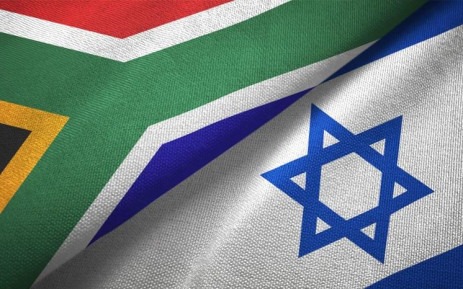In a recent development, the South African Presidency has clarified its stance on the country’s diplomatic ties with Israel. This clarification comes in the wake of a parliamentary motion urging the government to close its embassy in Tel Aviv and compelling Israel to shutter its mission in Pretoria. Despite these calls, the government, as stated by the presidential spokesperson Vincent Magwenya, currently has no plans to sever diplomatic relations with Israel. The decision not only reflects the intricacies of South Africa’s foreign policy but also underscores the separation of powers within the country’s constitutional framework.
1. Parliament’s Motion and Executive Prerogative:
Last week, Parliament adopted a motion calling for the closure of the South African embassy in Tel Aviv and the reciprocal closure of Israel’s mission in Pretoria. However, the presidency, through Magwenya, made it clear that foreign policy decisions lie within the executive’s prerogative. This underscores the separation of powers enshrined in South Africa’s constitutional dispensation. Magwenya highlighted the unprecedented nature of Parliament instructing the executive on diplomatic matters, emphasizing that the government’s foreign policy decisions are distinct from the legislative domain.
2. Complaint to the International Criminal Court: The South African government has not shied away from expressing its discontent with Israel’s actions. A complaint has been lodged against Israel with the International Criminal Court, accusing it of apartheid practices. Despite this, Magwenya stated that there are no immediate plans to follow up the complaint with diplomatic measures. This nuanced approach indicates a commitment to addressing grievances through legal channels while keeping diplomatic channels open for potential resolutions.
3. Presidential Engagement and Dialogue: President Cyril Ramaphosa’s active engagement in dialogue with other world leaders on the Middle East situation signifies South Africa’s commitment to diplomatic avenues. Magwenya highlighted that the president is actively exploring interventions that can be made to address the concerns raised. This diplomatic approach aligns with South Africa’s historical role as a mediator in international conflicts and suggests a preference for dialogue over abrupt diplomatic ruptures.
4. The Complexity of Diplomatic Decisions: Diplomatic decisions are multifaceted, influenced by a confluence of factors such as historical ties, international relations, regional stability, and domestic considerations. The government’s decision not to sever ties with Israel at this point is indicative of a nuanced understanding of the complexities involved in international relations. While expressing displeasure with Israel’s actions, South Africa seems to be navigating a delicate balance between addressing concerns and maintaining open channels for diplomatic dialogue.
South Africa’s approach to its diplomatic relations with Israel reflects a delicate balancing act. The recent parliamentary motion calling for the closure of embassies underscored public sentiments, but the presidency’s response affirms the executive’s authority in foreign policy matters. The decision not to sever ties, despite expressing displeasure and lodging a complaint with the International Criminal Court, suggests a commitment to diplomatic engagement and a preference for dialogue over drastic measures. As President Ramaphosa continues to navigate the intricate landscape of the Middle East situation, South Africa’s stance emphasizes the importance of nuanced diplomacy in addressing complex geopolitical issues.









